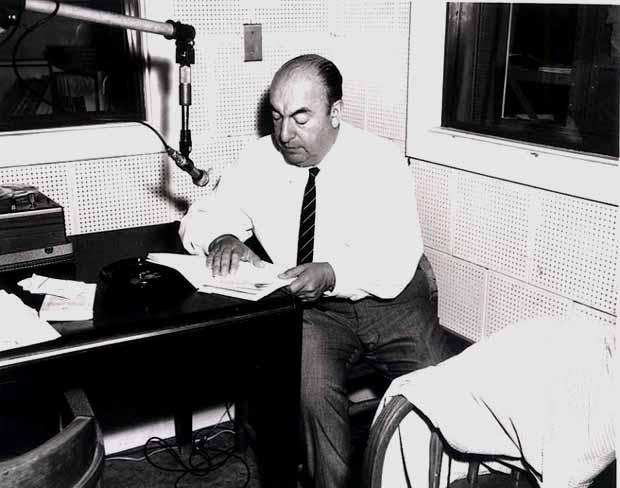Chile exhumes body of famed poet Pablo Neruda
Pablo Neruda during a Library of Congress recording session, 20 June 1966
The remains of famed Chilean poet Pablo Neruda were exhumed Monday, as authorities seek to lay to rest questions about whether he died of prostate cancer, or was murdered by the Pinochet regime.
The poet died at the age of 69 on September 23, 1973, a mere 12 days after Pinochet rose to power in a fiery coup. His assistant and driver alleges that Neruda did not die of prostate cancer, but was in fact poisoned by the regime at a medical center.
More from GlobalPost: Vatican said Pinochet killings were 'propaganda': US cable
Preparations for the exhumation began on Sunday, and the tomb was opened on Monday, CNN reported.
The exhumation comes after the Chilean Communist Party, to which Neruda belonged, filed an official complaint alleging that the poet's death came about a result of foul play.
Investigators will attempt to look for signs of cancer and toxic substances in the long-buried remains of the poet, although conclusive results in the case are by no means guaranteed, says the BBC.
"Time is a destructive factor," Dr. Luis Ravanal, an investigator for the office of Chile's government ombudsman, told CNN. "It is an element that erases evidence."
But Neruda's former personal assistant, Manuel Araya, is adamant he knows what happened to the poet.
"Until the day I die I will not alter my story," said Araya to the BBC of Neruda's death, which is listed as prostrate cancer on his death certificate.
"Neruda was murdered. They didn't want Neruda to leave the country so they killed him," Araya claims.
Neruda was buried at his Isla Negra residence next to his wife, Matilde Urrutia.
More from GlobalPost: Chile's President Allende "killed himself"
Every day, reporters and producers at The World are hard at work bringing you human-centered news from across the globe. But we can’t do it without you. We need your support to ensure we can continue this work for another year.
Make a gift today, and you’ll help us unlock a matching gift of $67,000!
